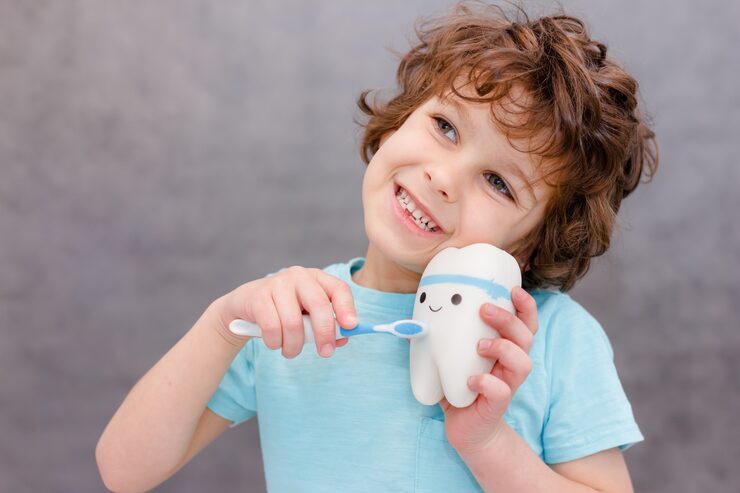It may not seem like all they have to do is brush their teeth twice a day, but dental habits are in fact a microcosm of all that is important in overall health care. Consistency of our teeth and gums will influence our self-esteem, nutrition throughout life, even when they are children till adulthood. It’s so important to get proper dental hygiene started young because these habits determine the oral health impact we hold for life. In a world that obsesses with sugar and lives fast, eating like this, education (and awareness) of your dental habits is more important now than ever. The first Step for a brighter, healthier smile I to my future is knowing the difference between good and bad habits and how to create strong and healthy ones.
Good Dental Habits
Good dental habits are those practices that contribute positively to oral hygiene and the long-term health of your teeth and gums. The cornerstone of good dental care starts with brushing teeth at least twice a day using fluoride toothpaste. Brushing removes plaque, a sticky film of bacteria that can lead to cavities and gum disease if not addressed regularly.
Flossing daily is another essential habit. It helps clean the tight spaces between teeth and beneath the gumline, where a toothbrush can’t reach. Many people underestimate flossing, but it’s a powerful tool in preventing gum infections and tooth decay.
Regular dental check-ups are also part of maintaining good oral health. Visiting a dentist every six months allows early detection of potential problems such as cavities, misalignments, or gum disease. Dentists can also offer professional cleanings that remove tartar and keep the mouth in optimal condition.
Additionally, adopting a balanced diet with limited sugar intake supports dental health. Foods high in calcium, like milk, cheese, and leafy greens, help strengthen tooth enamel, while crunchy fruits and vegetables can naturally clean the teeth and stimulate gum health.
Bad Dental Habits
Just as good habits protect and preserve oral health; bad dental habits can significantly harm it. One of the most common harmful behaviors is inconsistent brushing or brushing with improper technique. Aggressive brushing, for instance, can wear down enamel and damage the gums, leading to sensitivity and gum recession.
Frequent consumption of sugary snacks and drinks, especially sodas and candies, fuels the bacteria that cause tooth decay. Even fruit juices, while seemingly healthy, can contain high levels of sugar and acid that erode enamel over time.
Teeth grinding, also known as bruxism, is another damaging habit often related to stress or sleep disorders that can cause wear and tear on teeth and lead to jaw pain or headaches. Nail-biting, chewing on ice, and using teeth to open packages are other common behaviors that can cause chipping or cracking.
Skipping dental appointments is a major mistake, too. Small, manageable issues can escalate into costly or painful conditions if left unchecked. Preventive care is always more effective and less expensive than reactive treatment.
Healthy Dental Habits
Taking Good Dental Care Habits means you have committed yourself to daily practices that would shield your teeth, prevent oral diseases and promote general health. Dentistry basics the proper instruments in a strong routine are brushing your teeth with a soft-bristled toothbrush, correct toothpaste (fluoride), make small circular motions over every surface of every tooth.
Mouth rinsing with an antibacterial mouthwash is another means of securing against bacteria, specifically for those that are frequently suffering with gum disease. When we consume food/water after food and meals rinses away the food particles, and certain acid that weakens enamel succumbs to neutralizing.
Cutting out snacking between meals (especially on sweets or starchy foods) is a tactical behavior that allows the mouth to heal and delays more acid attacks. Chewing a stick of sugarless gum after meals also makes the saliva flow for oral cleansing.
As the most important a healthy dental lifestyle, it is to be preventative. Replacing brushes every 3-4 months, Pat testing your mouth for gum disease and keeping up to date with the latest research into oral health habits are all part of sustainable health. All of the simplest habits mentioned here can be easily utilized daily and in practice enough time wise to foil most dental issues.
Good Dental Habits for Kids
Teaching good dental habits to children is a gift that lasts a lifetime. Children form habits based on repetition and role modeling, which makes early education and parental involvement crucial. Establishing a twice-daily brushing routine from a young age sets the expectation that oral hygiene is a regular part of life, just like getting dressed or eating meals.
Using age-appropriate toothbrushes and fun-flavored fluoride toothpaste can make brushing more enjoyable. Singing a two-minute song or using a brushing app can help children brush long enough to thoroughly clean their teeth. Flossing should begin as soon as two teeth touch, with guidance from parents to help them learn the technique.
Limiting sugary snacks and encouraging healthy alternatives like fruits, cheese, and crunchy vegetables helps children associate good food choices with dental health. Drinking plenty of water and avoiding sugary drinks also play a big role in protecting developing teeth.
Perhaps most importantly, kids benefit from understanding why these habits matter. When children learn that taking care of their teeth helps them avoid pain, keep their smile bright, and stay healthy, they are more likely to take responsibility for their own hygiene.
Modern tools like GameSmile are making this educational process easier and more engaging. Our smart board game introduces children to the concept of healthy and harmful foods for dental health through interactive play. By turning oral health education into a game, children are more likely to retain information and develop strong dental habits from a young age.
Conclusion
Dental habits are long-term bets on Health, Confidence and Quality of Your Life. While most of us know some of the fundamentals of oral hygiene, the real change comes from repetition, indoctrination and education that lifestyle choices affect teeth and gums. Teaching a child, the difference between good and bad habits of dental empowers them to actively look after their own health in years to come so that they can have a stronger, healthier future. We are here at GameSmile to contribute families and educators with these habits through cool, science-based learning tools. Our interactive smart board game is not just fun; it is an experience that educates children on the linkage between what they eat, the health of their teeth and mouth (and overall wellness on a daily basis). Using education, technology and play, we are embedding a story of dental success into every child as they grow one good smile at a time.




